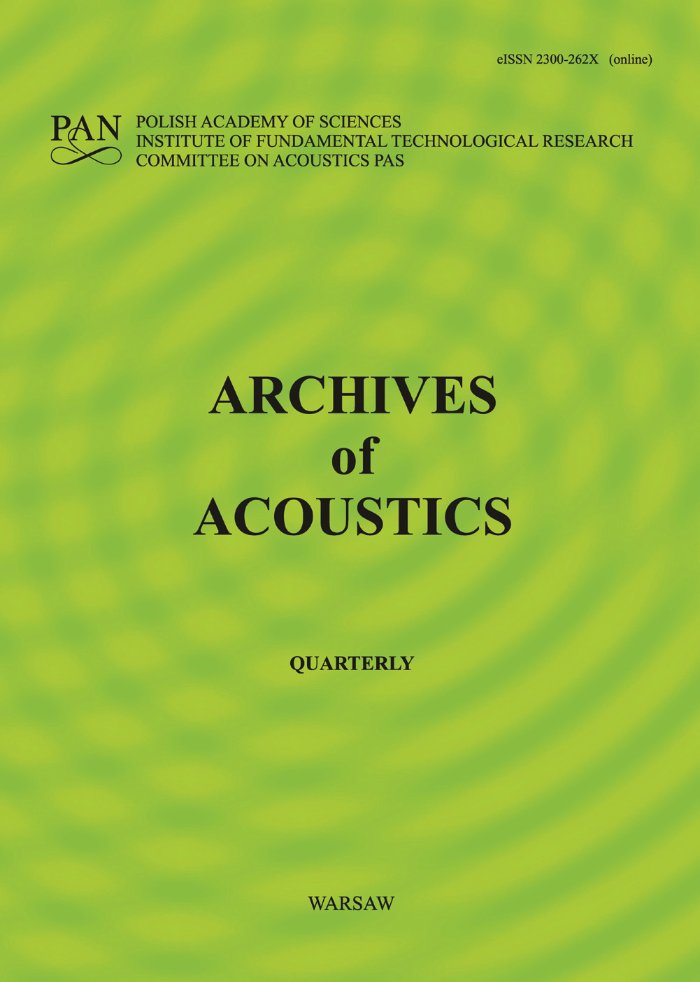Abstract
The V(z) measuring technique, i.e. the application of the acoustic micro-scope as a measurement tool is presented and explained. In the measurements, the pressure amplitude distribution on the surface of the lens is controlled in a certain range, enabling V(z) curves to be optimized with respect to oscillation amplitudes obtained for the given material. V(z) curves obtained with this set-up and calculated from them Rayleigh wave velocities are included in the paper. The possibility of using such a set-up in thin film measurements has been pointed out.References
[1] R. A. LEMONS, Acoustic microscopy by mechanical scanning, Internal Memorandum, The J. A. Hartford Foundation, Stanford 1975.
[2] C. F. QUATE, Microwaves, acoustics and scanning microscopy, Scanned Image Microscopy, E. A. Ash., Ed. Academic Press, London 1980, 23-55.
[3] A. ATALAR, An angular speculum approach to contrast in reflection acoustic microscopy, Journal of Applied Physics, 49, 10, 5130-5139 (1978).
[4] R. G. WILSON, R. D. WEGLEIN, Acoustic microscopy of materials and surface layers, Journal of Applied Physics, 55, 9, 3261-3275 (1984).
[2] C. F. QUATE, Microwaves, acoustics and scanning microscopy, Scanned Image Microscopy, E. A. Ash., Ed. Academic Press, London 1980, 23-55.
[3] A. ATALAR, An angular speculum approach to contrast in reflection acoustic microscopy, Journal of Applied Physics, 49, 10, 5130-5139 (1978).
[4] R. G. WILSON, R. D. WEGLEIN, Acoustic microscopy of materials and surface layers, Journal of Applied Physics, 55, 9, 3261-3275 (1984).


